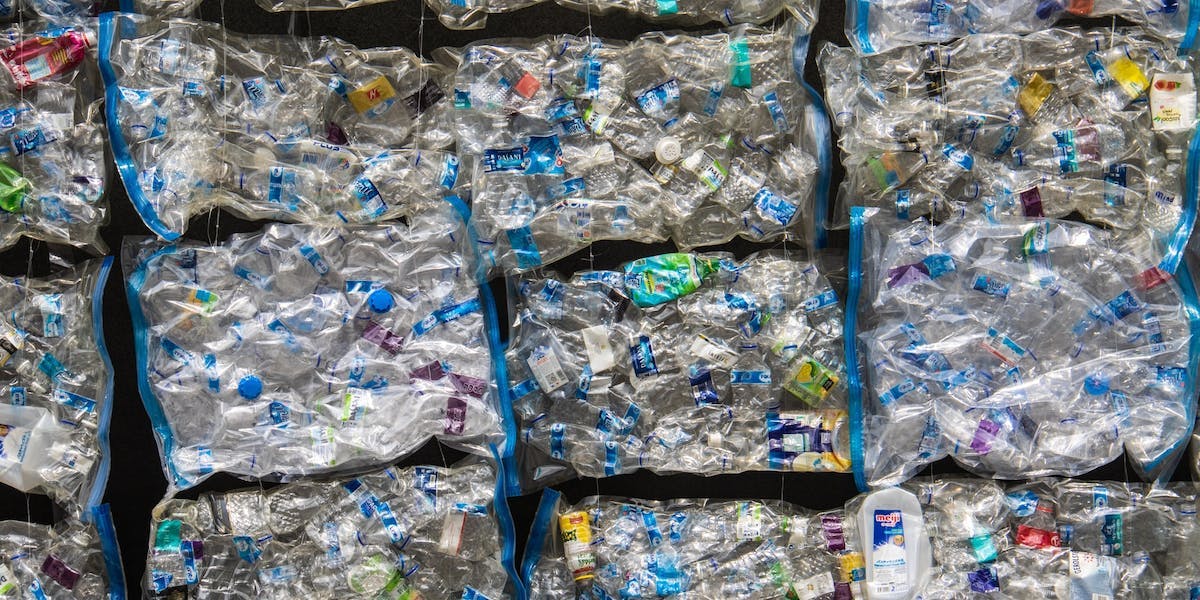Lifestyle
Ellie Unearths: Why Plastic Isn’t Always Bad
3min read
We have a plastic problem
Plastic is absolutely everywhere; in our clothes, our packaging, our facial cleansers, even our teabags. It is almost impossible to avoid and we don’t have the infrastructure to support its use at current levels. Only ‘9% is recycled globally’ (link) and the rest makes its way to landfill, incineration or directly to waterways; all highly damaging to ecosystems in the short-term and also completely unsustainable in the long-term.
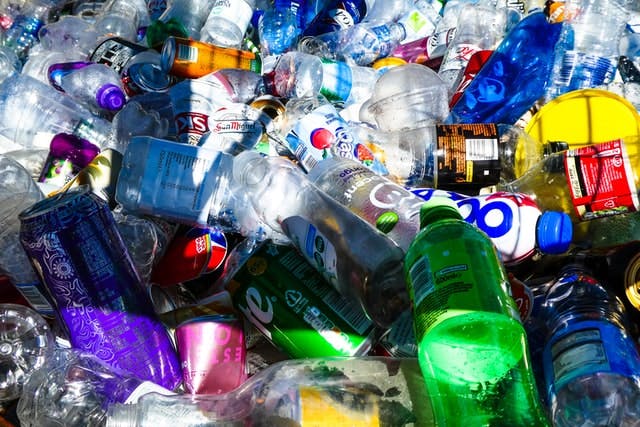
There is no argument for ignoring its presence and efforts to reduce consumption should, of course, be commended. But ocean plastic pollution has captured our attention more than any other environmental concern and is viewed as the major threat, arguably at the expense of other, more critical, issues like climate change.
A shift in our thinking
As early as the 1990s the problems plastic posed were being discussed. Researchers noticed that around 60-80% of the waste in the ocean was non-biodegradable plastic, and the amount of plastic washing up on beaches and in harbours was increasing. But the case for its use was too strong - as a cheap, light-weight, durable material - and that remained the leading plastic narrative until fairly recently.
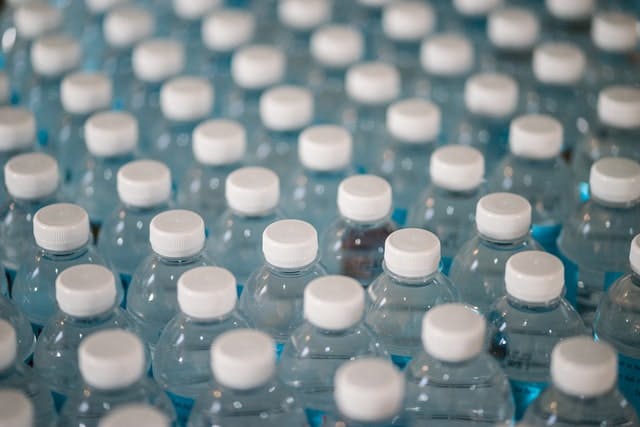
In 2004, the scale of the problem became more apparent when oceanographer Richard Thompson coined the term “microplastic” to describe the billions of minuscule bits of plastic that have either resulted from the breakdown of larger plastics or been deliberately made for use in commercial products. But this didn’t break through to public opinion until 2015 when ‘a group led by the University of Georgia estimated that somewhere between 4.8m and 12.7m tonnes of plastic were entering the ocean each year, a number they expected to double by 2025’ (link).
Blue Planet 2 effect (2017)
But plastic truly became Public Enemy No 1 in 2017 following David Attenborough’s final episode of Blue Planet, with six minutes dedicated to the impact of plastic on sea life. There was a turtle, hopelessly tangled in plastic netting, and an albatross, dead, from shards of plastic lodged in her gut. People started referring to the “Blue Planet II effect” to explain why public opinion had shifted against plastic so decisively.
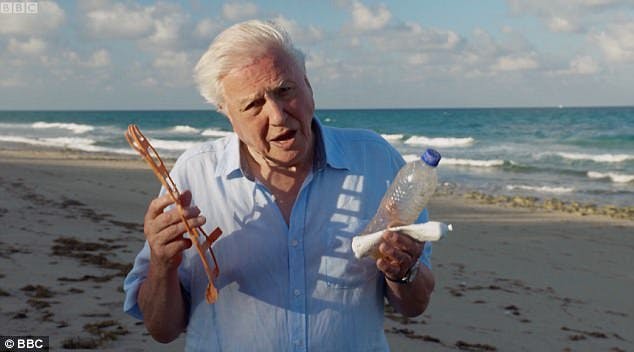
Photo credit: BBC
We began shopping differently and demanding action, packaging-free aisles popped up in Waitrose and the UK government applied a mandatory plastic bag levy as a result. This led BP to estimate that ‘the industry would be producing 2m fewer barrels of oil to be turned into plastic per day by 2040’(link).
Not all packaging is created equally
The achievements of this movement should never be downplayed and we are right to be concerned about our overall plastic use and to call on businesses to do more, but not all packaging is created equally. There is a fine balance between reducing plastic and not increasing food waste. So whilst there is no argument for wrapping a coconut - perfectly protected in its own shell - in a non-recyclable plastic film, there is an argument for protecting and extending the shelf-life of a cucumber from 3 to 14 days and for addressing the devastating fact that 22% food is wasted by consumers in the UK (link). This rotting food will generate emissions itself, but far more important are the emissions from the unnecessary production of the food itself.
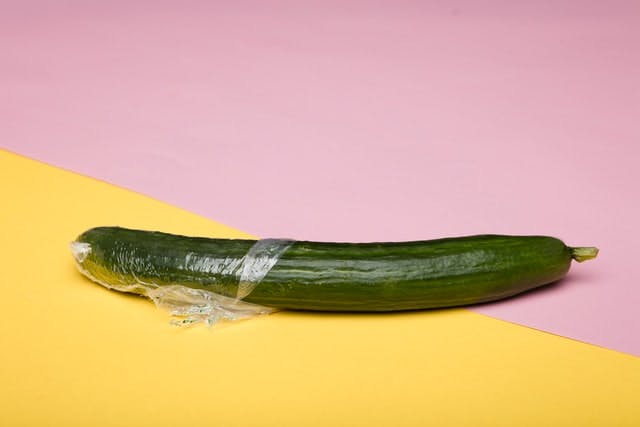
We should also question whether this intense focus has crowded out public interest in more pressing problems. Though completely interconnected, climate change and plastic pollution present different levels of threat and urgency; in fact climate change dwarfs our plastic problem. But plastic is visible, it’s in front of us now and we feel able to tackle it day-to-day, climate change is out there, vast, apocalyptic and difficult to comprehend, let alone act on.
So how do we focus our efforts on something we can’t sense? We listen to the stories of the people who are acutely feeling the effects right now* and we work to appreciate the deep connection between these stories and our daily actions, as well as those of businesses and governments. Plastic is made from oil and undoubtedly contributes to climate change, but ‘what you eat every day matters a lot more than what kind of bag you use to carry it home from the store’ (link). In fact, avoiding meat and dairy is now considered the ‘single biggest way to reduce your impact on Earth’ (link).
Distraction or a model for future action?
It’s very possible that the plastic backlash ends up being a small but energising victory for future action on climate change and we cannot ignore the issue. But it’s risky to settle on that with the limited time we have to act on climate change, 10 years to be exact. So let’s continue sounding the plastic alarm, but not at the expense of our climate and more imminent environmental concerns.
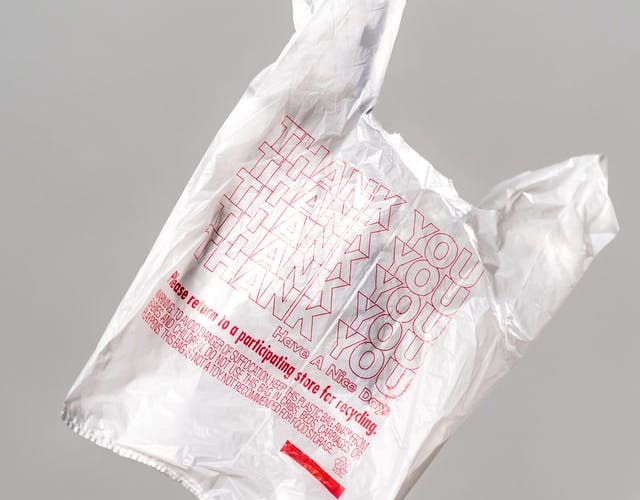
* Resources for understanding the impacts of climate change being felt now
By Ellie Harrison
Ellie heads up all-things sustainability, making sure everything we do is as conscious as possible. She couldn’t live without volleyball, killer whales and porridge… though hopefully not at the same time.
Let us take care of dinner
We help to make eating more plants easy and delicious. Fancy letting us take care of dinner? Check out our delicious meals here.
Shop now
